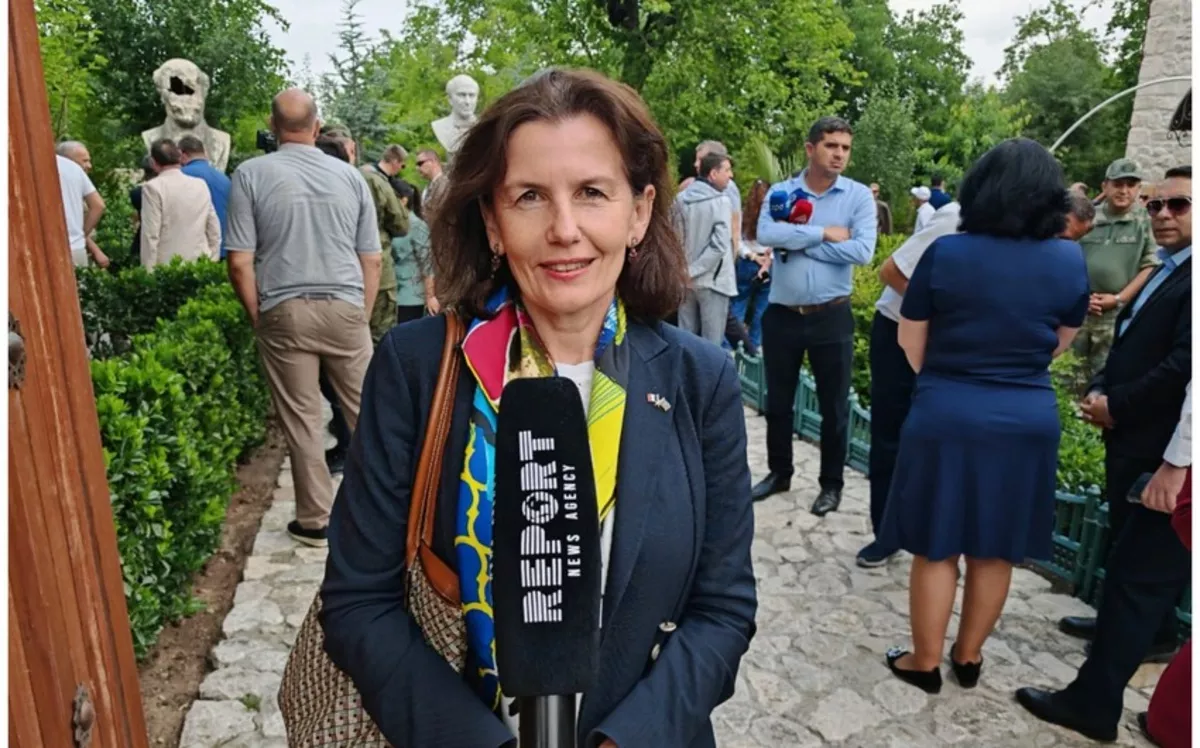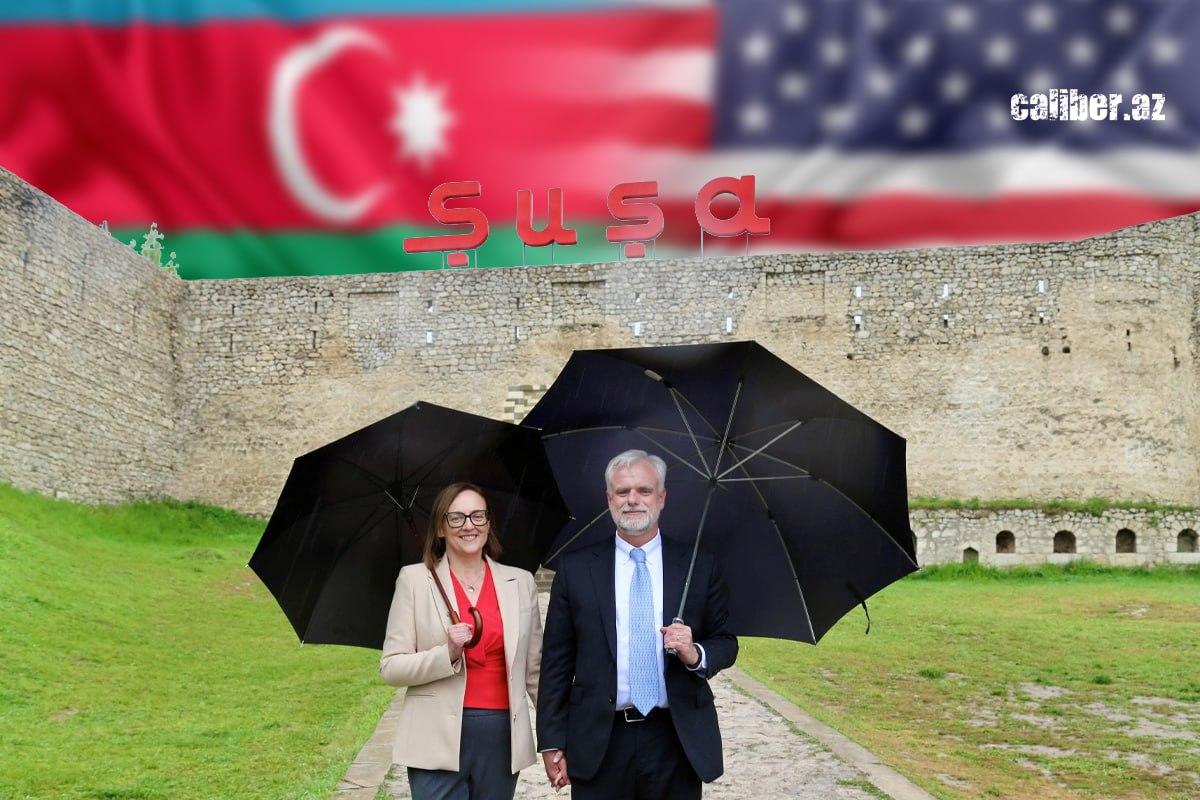Paris capitulated in Shusha France fires a shot at Armenian revanchism
Last week, an event occurred that Azerbaijan hadn’t exactly awaited with bated breath—but had quietly expected, somewhere in the recesses of its national consciousness. Ladies and gentlemen, the marvellous city of Shusha was visited by none other than the Ambassador Extraordinary and Plenipotentiary of France to Azerbaijan, Anne Bouillon, accompanied by members of the diplomatic corps accredited in the country.
"Indeed, I feel a great sense of joy being here. I know that Shusha holds a special place for Azerbaijan, since this city is a symbol of culture and art. In addition, Shusha has given the world many famous people," she said in an interview with local journalists in Shusha. Bouillon added that she was impressed by the scale of reconstruction and development efforts underway in the Karabakh region.

Let us clarify right away: our joy does not stem from Madame Boillon's kind words. What truly pleases us is that Paris has effectively surrendered in its long-standing diplomatic standoff with Baku. Or fizzled out—take your pick. For years, French diplomats resisted participating in such visits, making it abundantly clear that the Fifth Republic was, in essence, opposing Azerbaijan’s territorial integrity and sovereignty. Paris also didn’t want to rattle the nerves of France’s half-a-million-strong Armenian diaspora, which had lent its votes to Macron in the last presidential election.
In short, Paris has now taken a step it resisted until the bitter end—a step that has haunted it like a recurring nightmare. And it took this step not out of goodwill, but because there was simply no other choice left. It was compelled to do so, and the force behind that compulsion was none other than Azerbaijan and its carefully calibrated foreign policy.
In this context, one is also reminded of the Biden administration’s prolonged reluctance to send its ambassadors to Shusha. For example, in early May 2024, Ambassador Mark Libby, speaking to the Azerbaijani service of Radio Free Europe/Radio Liberty, cynically responded to a question about why he had not visited Shusha: "It is clear that the returned territories are slightly different. Even more coordination is required. However, I don’t want to be a participant in a show organised somewhere. So when the time comes, I will do it."
The ambassador clearly did not expect that “the time to do it” would come just a couple of days later. Evidently, even the U.S. State Department was taken aback by the bluntness of its diplomat’s rhetoric and quickly pressed him to rectify the situation. And indeed, on May 6, accompanied by his wife, Ambassador Libby paid a visit to the beautiful city of Shusha.

But these cause-and-effect dynamics are ultimately of a particular nature. In reality, states—including global powers—begin to abandon former principles when they come to a clear realisation: the costs of maintaining an outdated policy begin to outweigh its benefits.
It appears the French decided to draw a line under the matter once they fully understood that no overland transit of goods from Asia to Europe is possible without Azerbaijan. This issue became especially acute as the Israel–Iran conflict escalated into a full-fledged war involving the United States. The trajectory of both the Ukraine and Iran conflicts shows no sign of rapid resolution, which means all nations must now engage in long-term strategic planning regarding their policies across the Eurasian space. In this context, supporting Armenia—whether out of ideological alignment or other considerations—if not entirely abandoned, has clearly been relegated to a secondary priority. In fact, even in Yerevan, there are visible attempts to accelerate engagement in regional projects. The recent visit of Prime Minister Pashinyan to Türkiye is a vivid case in point.
France is unlikely to cease fuelling revanchist sentiment in Armenia suddenly. Nor is it easy to imagine Paris halting its support for Armenia’s militarisation. And yet, the visit of the French ambassador to Shusha had the impact of a bombshell—serving as a symbolic weapon against Armenian revanchism, potentially no less effective than cannons aimed at Azerbaijan. It marked a symbolic shot fired into the heart of Armenian-French solidarity.
With Paris, we must remain more vigilant than ever. Their actions are driven not by newfound clarity, but by necessity. Still, it is far more satisfying to witness France’s helplessness than to believe in any genuine change of heart—because it is precisely their helplessness that proves our strength.
And this is only the beginning.








